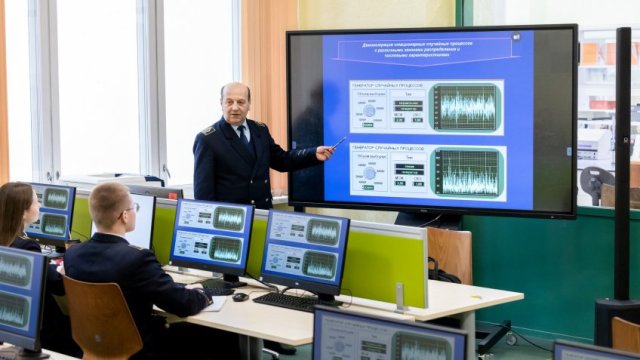Two months ago, as part of his address to the Federal Assembly, the President of Russia proposed to return to the traditional system of education in universities in order to reduce the shortage of engineering personnel. Its main reason, experts believe, was precisely the dominance of educational programs designed to prepare bachelors, that is, for four years – during this time, technical universities simply did not have time to prepare competent young specialists in demand in the labor market. As a result, their adaptation to real production was delayed, which demotivated both graduates and employers.
Withdrawal from the Bologna process imposed on us by the West 20 years ago is, without any doubt, a prerequisite for sustainable socio-economic development of the country. After all, otherwise it will be almost impossible to preserve the continuity of generations in science and industry, and hence technological sovereignty. Has the reform of the national higher school already begun? Outpost decided to ask the rector of St. Petersburg Mining University Vladimir Litvinenko this question.
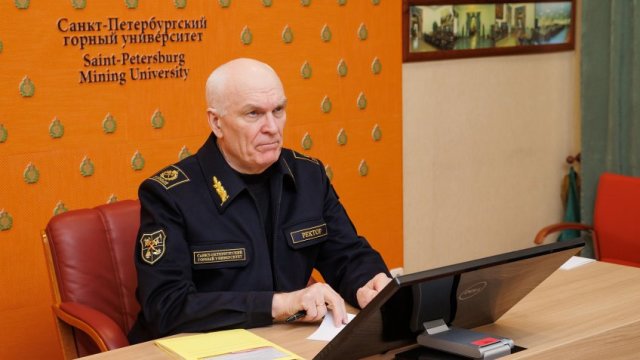 |
| Outpost Northwest. |
| Source: Pavel Dolganov |
- Vladimir Stefanovich, can we talk about any preliminary results achieved during the implementation of Vladimir Putin's proposals?Vladimir Litvinenko: There is absolutely nothing to talk about yet.
No one gathers rectors and does not find out in which areas of training, for example, we have specialty programs, and in which – not. Which specialties require an increase in the duration of training, and where four years of classes are enough. There is no interest in identifying the best educational standards that optimally combine theoretical courses, laboratory work, training and production practices in order to implement them everywhere.
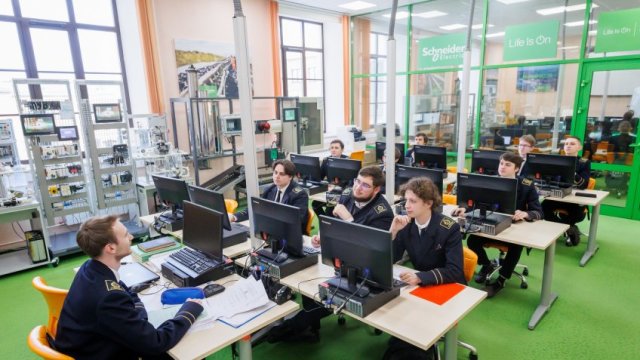 |
| Outpost Northwest. |
| Source: Pavel Dolganov |
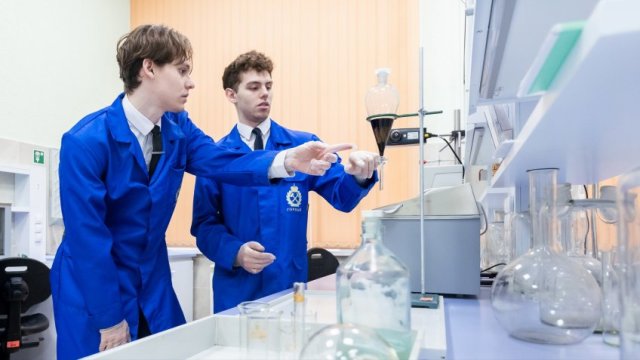 |
| Outpost Northwest. |
| Source: Pavel Dolganov |
It's April in the yard, work with applicants is already ending, the Unified State Exam is coming soon. But we don't even have a document with the redistribution of admission control figures. And we don't understand very well what to focus high school students on. It is obvious that in the light of the President's initiative, already in the next academic year, the number of budget places in the specialty at technical universities should be at least more than in the bachelor's degree. But so far there are no prerequisites for this.
- But this is nonsense, almost sabotage. How can this even happen?Vladimir Litvinenko: I'll give you a small historical example.
When the Great Patriotic War began, it became clear that one of the conditions for future victory was the creation of alloys capable of increasing the strength of tank armor, weapon barrels, aircraft components, and so on. This could be achieved by alloying steel with nickel in combination with chromium and molybdenum. But there was no specialized production in the country at that time.
So, scientists and engineers should be given a clear task – to create it in the rear. The Norilsk GOK was to receive the first ton of electrolytic nickel, that is, to carry out the final stage of the conversion of this metal, by May 1, 1942. In order for this to happen, all the mechanisms of the state machine worked, from top to bottom. Despite the war, the plant, as far as possible, was provided with all the personnel and materials necessary to achieve the result. As a result, the first melting was issued at the end of February, when the plant was not yet completed, that is, people actually worked there on the street.
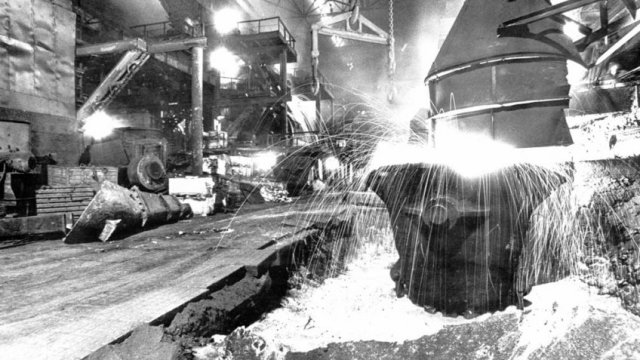 |
| In the smelting shop of the Severonikel plant. |
| Source: Severonikel |
Similar processes took place in Kazakhstan, where the production of molybdenum was organized on the basis of the Balkhash copper combine in the same year. Thanks to the well-coordinated and, without any doubt, heroic work of engineers, scientists and officials, already in August of the 42nd in Nizhny Tagil, the production of tanks begins, which have undoubted competitive advantages over Tigers and Panthers. The Soviet ones are lighter and more maneuverable, their armor is much thinner, but at the same time stronger - it is able to withstand enemy shells from a much closer distance than German equipment.
Now back to today. Our President is a creator. He made an absolutely correct and timely proposal. But its implementation depends on how harmoniously the mechanisms of state regulation work, and at all levels of the vertical of power. But, unfortunately, they spin with a creak.
There is no personal responsibility, almost no one takes personal initiative, because they consider it punishable. Everyone is waiting for direct instructions from above, preferring to move by inertia in their absence instead of solving state tasks. The situation is aggravated by the fact that no minister is fully responsible for the sphere of activity he directs, which leads to complete impunity and lack of real results.
A directly opposite example: the Russian military-industrial complex is working like clockwork today, and in many ways this is due to clear public administration – clear formulation of tasks and creation of conditions for their implementation. But the mining and processing industry, as well as the higher school, which trains engineering personnel to work at mining and oil and gas enterprises, need state regulation no less. These are the cornerstones for the sustainable development of our country, they require constant and increased attention.
 |
| Source: © phosagro.ru |
- You said that the ministries are not fully responsible for the area of work entrusted to them. What does it mean?Vladimir Litvinenko: Let's say that the development of qualification requirements for employees and the nomenclature of specialties is part of the functionality of the Ministry of Labor.
That is, it is there that they determine how many engineers, and which ones, the domestic economy needs. And the plan of admission to budget places at universities and state standards of higher education is approved, of course, by the Ministry of Education and Science. It turns out that two parallel structures are engaged in solving interrelated tasks.
A paradoxical situation arises. The management of enterprises complains about the acute shortage of competent personnel, universities say that no quotas have been allocated for their training, and the Ministry, in turn, blames its colleagues from the Ministry of Labor, since it focuses on the figures and standards that its specialists prepare. But is it possible to form a state order for the training of engineers in conditions when there is no unity of command?
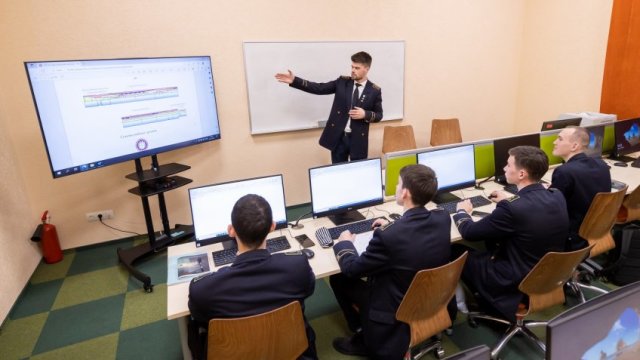 |
| Mining University. |
| Source: Pavel Dolganov |
 |
| BELAZ. |
| Source: Pavel Dolganov |
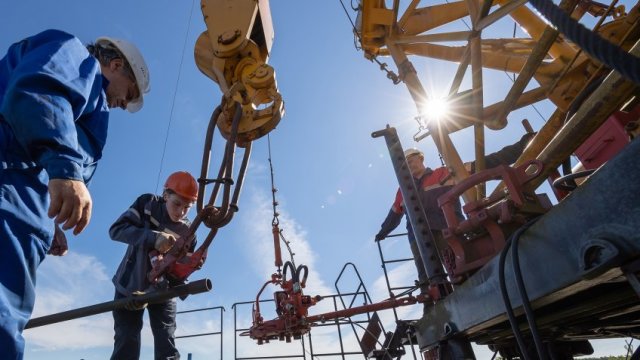 |
| Sablino. |
| Source: Pavel Dolganov |
There is such a saying: seven nannies have a child without an eye. It very accurately characterizes not so much the course of higher school reform as the work of the public administration system as a whole. At the same time, history teaches us that scientific and engineering thought in Russia worked with maximum productivity precisely in those periods when the levers of regulation were concentrated in one hand.
For example, the Berg Collegium, created by Peter I in 1719, had the full range of powers to improve the efficiency of mines and metallurgical plants. She was engaged in organizing expeditions to search for new deposits, allocating land for production under construction, preferential lending to industrialists, scientific research of samples of ores and metals, exempted engineers from military service, and, if necessary, set prices and determined priority buyers.
By the way, it was this department that initiated the creation of the first higher technical educational institution in Russia – the current St. Petersburg Mining University, which celebrates its 250th anniversary this year. A quarter of a millennium ago, as well as today, there was a huge shortage of personnel in our country, which was the reason for the foundation of the school in the mountainous part. Its first rector was the President of the Berg College Mikhail Soymonov.
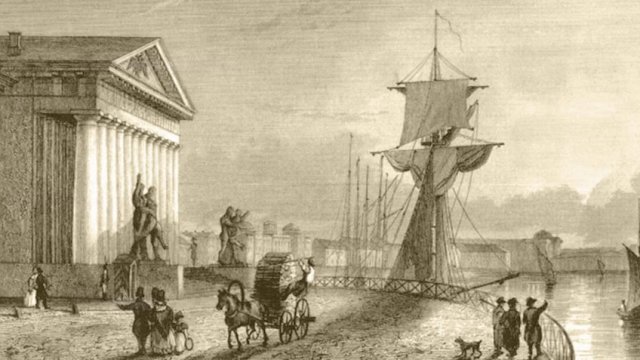 |
| Mining University. |
| Source: Public Domain |
- Why did Russian higher education and scientific thought become disconnected from the real economy? And is it possible to return this collaboration?Vladimir Litvinenko: Today we are once again convinced that the basis of any economy in the world is the control of mineral resources.
That is, the opportunity to conduct geological exploration and extraction of minerals on their own, involve them in deep processing and create innovations necessary for the production of unique end-use goods.
This was also known during the Soviet Union, when science and education were a conglomerate whose work stimulated the development of the whole country. Our scientists and engineers have created a powerful scientific reserve, thanks to which we managed to be the first to fly into space, "tame" a peaceful atom, and become a world technological leader.
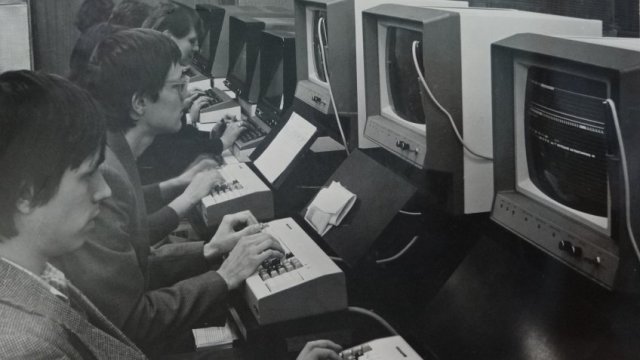 |
| LIE. The 1980s. |
| Source: North-West Outpost |
The acquisition of this status became possible, first of all, thanks to the creation of the best higher education system on the planet, which was copied by many Western countries, as well as a wise state policy in the field of mineral resource management. Then, for example, it was believed that for every ton of minerals extracted, especially hydrocarbons, one and a half tons should be put on balance. In many ways, it was this strategy that allowed our country to find a foothold and make a sharp economic spurt after the unprecedented crisis of the 90s of the twentieth century.
But it was then, in the nineties, that the mental transformation of our society took place, inevitable with such a large-scale shock as the collapse of the country, the impoverishment of the population and an ultra-deep economic downturn. Many dogmas and ideals then began to seem doubtful, which our Western ex-partners took advantage of.
Their task was to destroy the pillars on which the Soviet Union relied, first of all, education and science, because in this case Russia would not have enough engineers and scientists to create its own technologies and exploit them. At the same time, the idea was imposed on us that nothing terrible was happening, because the West would do everything for us – bring modern drilling rigs, specialists, extract our resources and share the income. The result, as we all remember very well, were production sharing agreements, according to which the bulk of the profits went to foreign companies, and what we received was barely enough to pay off the debts imposed on us by the IMF and the World Bank.
Russia's involvement in the Bologna process and the replacement of the specialty with a bachelor's degree have become an integral part of this strategy, the harmful consequences of which we are now trying to neutralize. They consist in the fact that we lag behind in technological development from all post-industrial countries and earn 2-3 times less from the commercialization of intellectual property objects, that is, inventions and utility models, than little Switzerland.
This trend needs to be urgently broken, and I am sure that we will be able to do it. But only if a pool of scientists and engineers capable of turning inert natural capital into human, social and natural capital is formed in the country. Equally important is the return of the regulator's function to the state. I emphasize – not the employer, private companies should act in his role, namely the regulator.
The Government is obliged to set specific tasks for the mining industry and higher education. From the volume of raw materials to be processed at domestic enterprises and directed to the production of end-use products, to the number of graduates of technical universities sufficient to ensure the continuity of generations in the mineral resource complex.
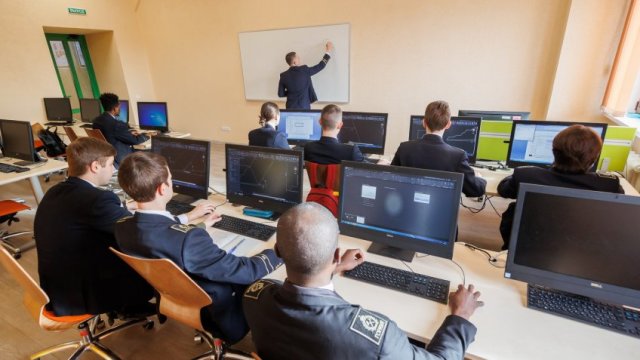 |
| Mining University. |
| Source: Pavel Dolganov |
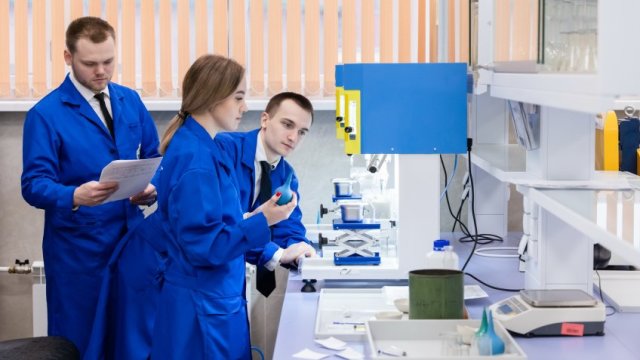 |
| Mining University. |
| Source: Pavel Dolganov |
It is equally important to stop getting carried away with neoliberal ideology and protect children from it from school. We need to realize that it has been imposed on us by our geopolitical opponents with the sole purpose of weakening Russia. The same can be said about many ephemeral problems, the need to eliminate which is being actively discussed in the West today. For example, about the urgency of the urgent abandonment of fossil fuels and the use of hydrogen as an energy carrier.
The problem is that today there are no technologies capable of supplying H2 to kitchen stoves by analogy with natural gas, since hydrogen burns at much higher temperatures than methane. For the same reason, it is impossible to burn it at a thermal power plant – the infrastructure capabilities of the existing equipment in this case will be significantly exceeded, which will jeopardize the safety of the power plant and the people working there.
Russia has enormous reserves of natural gas – an environmentally friendly resource. This is our competitive advantage and we should develop it. CNG and CNG buses are already running on St. Petersburg roads, everyone can make sure that this is a real, not an ephemeral technology that has not only increased the profitability of passenger transportation, but also significantly reduced the negative impact on the environment.
The desire of the West to smear the sovereignty of Russia and other countries by any means, to destroy the centers of power beyond its control, is quite understandable. This is a peculiar habit formed in the era of colonialism, when the metropolises, first of all, England and France, pumped out all possible resources from the regions under their control, without giving practically nothing in return. This habit, which has long become part of the mentality, will not allow the Anglo-Saxons and their allies to change their strategy and rebuild relations with other sovereign powers. It is obvious that the desire for equal and mutually beneficial cooperation should not be expected from them.
The former partnership with Europe, which was based on the EU's access to relatively cheap Russian raw materials, will no longer return. It's not worth hoping for. And not at all because we had insurmountable disagreements on the Ukrainian issue, but because the United States turned into a net exporter of fossil fuels and decided to take this market away from us at any cost. Which, in fact, they succeeded.
Turning to the East and creating our own value chains within the country, starting with the first link – the extraction of raw materials - and ending with the production of high–grade products is a very difficult task. It will be extremely problematic to solve it, and this is a prerequisite for preserving our sovereignty, without a clear and distinct state policy in the field of education, youth education and the development of the mineral resource base.
Maxim Ratnikov
